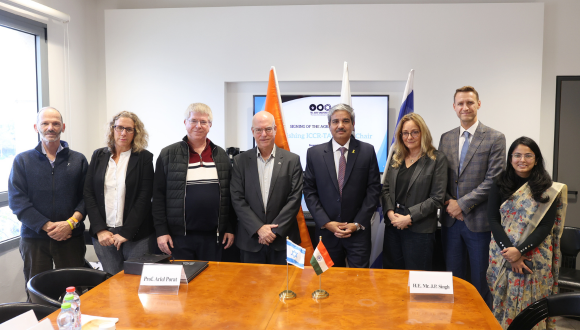Impression 3D : le Chief Scientist veut qu'Israël s'impose avec des standards aussi fiables qu’en aéronautique

[:fr]Avi Hasson, Chief Scientist au ministère israélien de l’Economie a déclaré : « Le domaine de l’impression 3D vient d’entrer en phase industrielle. Ce nouveau secteur fascinant va influencer de manière significative les processus et les produits dans l’avenir. Il est important qu’Israël s’impose au niveau mondial et relève ce défi en concevant des composants qui répondent à des normes strictes, comme dans l’industrie aéronautique ».
Le comité de R&D MAGNET, dirigé par Avi Hasson, a donné son feu vert au consortium Atid qui va produire des équipements pour l’aéronautique en titane en trois dimensions, avec un démarrage mi 2015. Le consortium peut ainsi poursuivre ses activités et générer des plans de travail pour les trois prochaines années, dont un plan détaillé pour la première année.
Le consortium Atid (mené par Cyclone, filiale de Elbit Systems) développera des technologies d’impression 3D pour l’aviation israélienne. Il utilisera les imprimantes existantes pour planifier et fabriquer des structures complexes pour l’aviation qui ne peuvent être fabriquées qu’en impression 3D.
Les sociétés qui composent ce consortium sont Cyclone, Israel Aerospace Industry, Israel Military Industries, Orbit, Algat, CAS, Admar. Y sont associés les chercheurs de l’Université de Tel Aviv, de l’Université Ben Gourion du Néguev, du Technion, l’Institut de la métallurgie et le College Afeka…
Ilan Peled, directeur général du comité MAGNET, a ajouté : « ce troisième consortium, en plus des consortiums Infomedia et Omek déjà approuvés, complète efficacement le programme 2015 qui prévoit 12 consortiums dotés au total d’un budget de NIS 200 millions (environ 47,5 millions d’euros). »[:en]The MAGNET (Generic Technology R&D) committee, headed by the Chief Scientist in the Israel Ministry of Economy Avi Hasson, has given a green light to Atid – a consortium to produce aviation constructions printed three-dimensionally in titanium – which will start working in the second half of 2015.
The significance of this approval is that the consortium can continue its preparations, including outlining mission statements and generating work plans for the next three years, including a detailed plan for the first year.
The Atid consortium – led by Cyclone, an affiliate of Elbit Systems – will develop generic technologies which can serve as an infrastructure for manufacturing optimal buildings for the Israeli aviation industry by printing them in 3D. The consortium will not develop printers but rather use existing printers for the planning and manufacturing of complex aviation-related structures.
The innovative aspect of the consortium will be the ability to plan and manufacture geometrically complex structures which can only be manufactured via 3D printing.
The companies making up the consortium are Cyclone, the Israel Aerospace Industry, Israeli Military Industries, Orbit, Algat, CAS, Admar and researchers from the University of Tel Aviv, Ben Gurion University, the Technion, the Metallurgical Institute and Afeka College, among others.
Avi Hasson, Chief Scientist at the Israeli Ministry of Economy, remarked that “The field of 3D printing is taking its first strides in manufacturing processes. This is a fascinating new field which can be expected to significantly influence processes and products in the future. It is important that Israel enter the world of 3D printing and it will be a challenge to do so with components that meet stringent standards, as is in the aviation industry”
Ilan Peled, director-general of the MAGNET Committee, added that “This third consortium, in addition to the already approved Infomedia and Omek Consortia, effectively completes the consortium program for 2015, in which there are 12 active consortia with a total working budget of NIS200 million.”[:]







